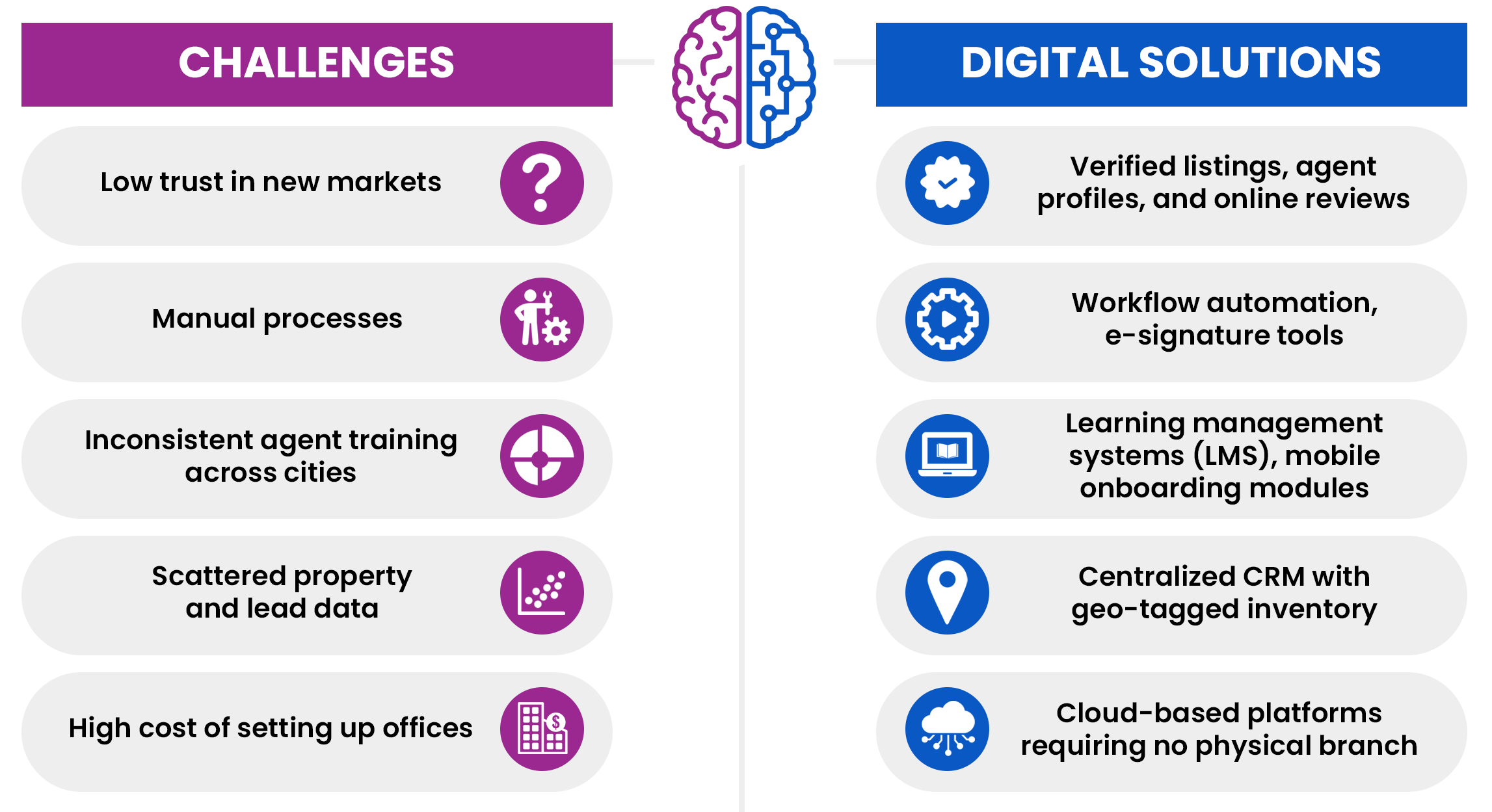For years, Metro Manila has been the epicenter of real estate activity in the Philippines. However, the landscape is shifting, with secondary cities like Cebu, Bacolod, Iloilo, Davao, Pampanga, Bulacan, Cavite, and Laguna experiencing a surge in real estate growth, attracting both buyers and investors seeking affordability and strong returns. This trend is fueled by several factors, including a slowing pace of urban migration as people seek a more balanced lifestyle and lower cost of living outside the congested capital. Infrastructure developments in these regions, such as improved road networks and airports, further enhance their appeal and accessibility.
Provincial urbanization mirrors international patterns of decentralization, indicating a sustained shift toward regional markets. While Metro Manila still holds significant investment potential, the growth in key provinces presents a compelling opportunity for real estate firms looking to expand their footprint.
However, expanding into the provinces brings new challenges: fragmented customer interactions, difficulty managing remote teams, lack of brand awareness, and the cost of building new regional offices. This is where the strategic adoption of digital platforms becomes not just an advantage but also a necessity for sustainable growth.
Real Estate Digital Platforms as the Foundation for Scalable Growth
Tech adoption is changing how properties are marketed, sold, and managed. Real estate digital platforms offer solutions that directly address the challenges of distance, visibility, and operational complexity.
Digital Marketplaces: Catalysts for Regional Growth
Online property marketplaces and apps are changing how property discovery happens in the Philippines. Both public and firm-initiated platforms act as powerful growth enablers by empowering firms to:
Unlike traditional marketing methods limited by geography, digital marketplaces allow real estate firms to target potential buyers and investors specifically within provincial areas. Features like location-based search filters and targeted advertising ensure that listings reach the right audience, maximizing impact and minimizing wasted resources.

These platforms often provide valuable data and analytics on buyer preferences, search trends, and property values within specific regional markets. Understanding local demand is crucial for tailoring offerings and achieving higher conversion rates.

Digital marketplaces such as Lamudi, DotProperty, and NAVIS by Arthaland offer a significantly more cost-effective way to market properties and build brand awareness in new regions without building physical offices. Investing in proptech (property technology) is typically a fraction of the cost associated with setting up and maintaining a physical branch.

Listing properties online can boost a real estate firm’s visibility in provincial areas. Positive reviews and verified listings can also help build credibility and trust with potential clients. Digital marketplaces attract a substantial number of property seekers, offering immediate exposure for listings.
Mobile Apps: End-to-End Provincial Property Toolkit
Mobile applications are evolving beyond simple property search tools to become comprehensive platforms for managing the entire real estate lifecycle, especially in geographically dispersed provincial markets. They provide:
Mobile apps enable seamless and instant communication between agents, potential buyers, and property managers, regardless of location. This ensures that potential buyers in the provinces receive the same level of engagement and information as those in the metro area.

Mobile apps can facilitate online booking of property viewings, virtual tours, and reservations. They can also integrate with payment gateways for secure online payments, simplifying the process for buyers in provincial areas who may have limited access to physical payment channels. Furthermore, features for digital document handling can expedite the closing process, reducing paperwork and the need for physical meetings.

Mobile-first platforms are invaluable for onboarding and managing local agents. Agents in remote locations can access up-to-date property inventory, marketing materials, and CRM systems through their mobile devices. This centralized access ensures consistency in information and processes across all locations.
Overcoming Provincial Hurdles
Expanding into provincial markets often comes with specific challenges, particularly around trust, efficiency, and agent management. Technology offers powerful solutions to these common hurdles.

Strategic Moves for Real Estate Leaders
To effectively expand reach and capitalize on the growth potential of provincial real estate markets, firms need to strategically leverage digital platforms. Here are key steps to take.
Real Estate Growth Beyond City Limits
Digital platforms are essential for real estate firms aiming for scalable and efficient expansion into the emerging provincial markets of the Philippines. They provide the means to overcome the traditional barriers of geographical distance, build trust with new customer bases, and streamline operations across multiple locations.
Real estate firms that strategically invest in digital platforms now are poised to lead the next significant wave of real estate growth outside of Metro Manila. Don’t miss the opportunity to establish a strong foothold in these emerging markets. Fill out the form below to schedule a discovery call with #StratpointSoftware experts.




